Outsider expectations of the Macalester women’s golf team were not high heading into the MIAC Conference Championships on Oct. 5-7. The team’s previous three competitions included an 11th place (out of 15 teams) finish at Concordia, a 12th place (out of 16 teams) performance at the DIII Classic and a dead last placement at the College City Championships. Last year’s team was eighth in the conference, and this year’s team struggled to maintain consistency.
But at the MIAC Championships, two first-years, an Ecuadorian and a Wisconsinite, along with two upperclassmen from Minnesota led the team to a record-breaking day. In fact, through the first nine holes of the tournament, the team was in the lead.
Elena Baker ’17 (Quito, Ecuador) shot a Mac 54-hole record score of 242, placing her ninth in the MIAC. Not far behind was team captain Maddie Arbisi ’14 (Stillwater, Minn.) with a personal best score of 256, earning her 28th place. Suzanne Dufault ’15 (Fosston, Minn.) and Cydni McMillian ’17 (Milwaukee, Wis.) shot 260 and 264 respectively, good for 36th and 38th overall. While the team’s eighth place result mirrored last season, its total score of 1022 was the lowest in program history, an improvement of 55 strokes from last year’s conference tournament.
For Arbisi and Dufault, the meet showcased their perseverance and dedication for the sport. Both of their 54-hole scores were among the top 10 in school history. Arbisi’s total was a career best, while Dufault’s performance was added proof that she has come a long way in the past year, improving her scoring average for 18 holes by 8.9 shots. An Academic All-MIAC scholar-athlete last year, Dufault has her eyes on Academic All-American this year.
Meanwhile, the newcomers Baker and McMillian provided instant results. Baker was the team’s consistent low-scorer with an 82.5 average round, while McMillian’s 88.5 mean score was just behind Dufault and Arbisi. Both first-years acknowledged that despite their strong first collegiate seasons, they had played better golf before. McMillian was especially self-critical of her game. “It felt pretty mediocre,” she said. “I expected more out of myself this year, but it was my first season.”
Shooting for the Moon
The team can possibly attribute some of its success to its new motto, which Arbisi and Dufault said is focused on setting unrealistically high goals. “It’s kind of like if you shoot for the moon and miss; you land among the stars,” Dufault said. “You’re going to land closer if you have higher expectations.”
The two upperclassmen were insistent that the team has reached a point where it can stay competitive with the rest of the MIAC teams. “We’re very competitive within the team, but we’re also all there for each other,” Dufault said. “We push each other to play better.”
Arbisi said this year marked a power shift atop the talented MIAC. For the past three years, Gustavus Adolphus College and St. Olaf were the frontrunners, consistently qualifying for Nationals. However, St. Thomas and Carleton finished in first and second this year. St. Olaf fell to seventh place, just 14 shots ahead of Mac. “We can definitely play with the best, it’s just having more experience in that position,” Arbisi said.
Losing Number One
While the future appears bright for the women’s team, the team took a step backward when Baker announced after the MIAC Championships that she was leaving the team. According to Baker, her childhood was consumed with living and breathing golf. Her parents and youth coaches recognized her talent at age nine, pushing Baker to practice daily and compete weekly in tournaments around Ecuador.
“Hitting the ball is something that I’ve always been able to do,” Baker said. “It was one of those things that people and coaches saw that I had talent to do it, so they just kept getting me more and more involved until I couldn’t get out.”
Baker’s dedication to the game earned her a spot on Ecuador’s Junior National Team, although she shies away from mentioning the honor. In high school, she moved to Tennessee to attend the Baylor School, a golf powerhouse, and faced even more pressure to perform. During Baker’s sophomore year, she placed fifth in the state and led her team to its 16th straight state championship.
But the pressure began to take its toll. Baker was playing among Division I college recruits and it was almost more difficult to make the varsity team than to qualify for state. Her junior season, she fell out of the lineup after failing to hit in the mid-70s for a round of 18. Baker decided that golf wasn’t her thing. She quit the team and moved back to Ecuador to finish her final year of high school. In her senior year, she did “all of the things she wanted to do but couldn’t do because of golf.”
“I traveled, I took art classes, and I learned languages,” she said. “Since golf took up so much of my time—it was everything I did—I guess that’s why I got so burnt out from it.”
Baker said she had no plans of resuming golf in college. However, her golf résumé stood out to Coach Tomas Adalsteinsson, who recommended she give Mac golf a shot. She was hesitant, but eventually joined the team.
While Baker said she’s appreciative of the way Adalsteinsson and her teammates welcomed her, she quickly recognized that she was falling into the same trap. “I didn’t want to keep doing things for other people anymore,” she said.
Although Baker persisted through the season, her teammates Arbisi and McMillian could tell that she wasn’t fully into the game. “I’m just not a very competitive person,” Baker said. “For many people, it’s difficult to understand why setting records and those things don’t really excite me. But I don’t really care […] about those type of awards. I don’t care about a trophy. As long as I’m satisfied with how I did, I’m fine.”
Baker said that while quitting is often frowned upon in American culture, in South America the attitude is more “if you dislike something, don’t do it.”
“Some people do [think I’m a quitter], especially my parents, and it really hurts,” she said. “People had really high expectations of my golf career. I really let down a lot of people.”
“It’s really difficult to quit because golf is my life’s work,” she said. “That’s why I decided in college it’s something that I don’t want to do because in college I want to learn how to do something else. I may not be as good at it, but I want to find things that love doing. I don’t really love playing golf.”
While no longer on the team, Baker said she sees a lot of potential in the team. “I think they were all really happy with how the team has been improving,” she said. “Tomas deserves it, too. The girls put a lot of effort into it. I think it was very rewarding for Tomas and the rest of the team.”
Arbisi said she was impressed with Baker’s maturity in making the decision. “I’m very proud that she took the time and courage to do what was right for her,” Arbisi said. “She’s still part of the family and always will be.”
Stepping Up Her Game
With Baker off the team, McMillian has the potential to step into the team’s top spot. “Going into next fall, I feel like my coach is going to have really high expectations for me,” she said.
McMillian said she felt confident that Adalsteinsson’s high expectations would translate to greater success for her and the program. “[Tomas] says it’s not about winning, but you can tell that he really wants to win,” she said. “But I would rather have someone have higher expectations of me than lower.”
McMillian started playing golf even earlier than Baker, at age four. McMillian recalled playing with her dad back in elementary school. “We would hit like three large buckets and just stay [at the range] all day,” she said. “We could eat dinner and lunch and stuff at the range. It was just so fun.”
McMillian said that she has walked a fine line in splitting her time between academics and golf. “It turned out that I really wanted to focus on academics, but golf wasn’t something that I wanted to completely give up,” she said.
With their selfless, fun-loving attitudes, McMillian and Baker quickly developed a close bond. “We just clicked really well,” McMillian said. “We’re always on the same page.”
They have made fall break plans to travel to McMillian’s hometown, Milwaukee, Wis., which McMillian said will include a stop at her favorite Middle Eastern restaurant and a visit to Chicago.
“They are inseparable, those two,” Arbisi said. “Elena and Cydni are basically attached at the hip.”
Reaching the End
While McMillian’s Mac career has just begun, Arbisi said her final round at the MIAC Championships could have been her last as a Scot. After her final putt, Athletic Director Kim Chandler greeted her with a warm hug. Arbisi said she hopes her legacy is marked by her commitment to the program.
“I’m so proud to be a senior, to be able to see the development,” Arbisi said. “I love where the program is going. [Tomas] will never stop shooting for the moon, and I think that’s such an amazing quality to have in a coach.”
A New Playing Field
The daily rigour of a Mac women’s golf athlete is astonishing. According to McMillian’s estimation, the team spends about 24 hours a week in training. This includes two-hour practices throughout the week, at least one four-hour practice a week, typically a two-day invitational during the weekend and Tuesday yoga sessions.
“To get to the next level will take us getting used to being great,” Dufault said. “The danger with golf is the second you lose focus, it’s over.” McMillian experienced this at the conference meet, where she shot 10 pars and a birdie in one round, but played sloppily towards the end as her focus slipped. The next day, McMillian had four birdies, but again she struggled to stay consistent. This is just one of the prices the team must pay as it improves. With higher expectations, shooting previously “good scores” could be considered a “bad round.”
“I would say we took a step onto a different playing field,” Arbisi said. “I think that playing field has Nationals in the future.”
Arbisi compared the team’s progress to the build-up of a novel, just before the climax. “Everything is right there … and then what comes next?” she said. “Success, that’s what comes next.”
“I think we’re cocooning,” Dufault said. “This is the metamorphosis of Mac golf.”










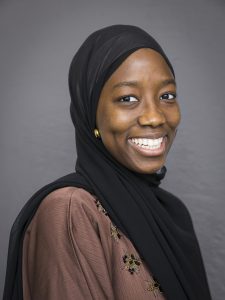


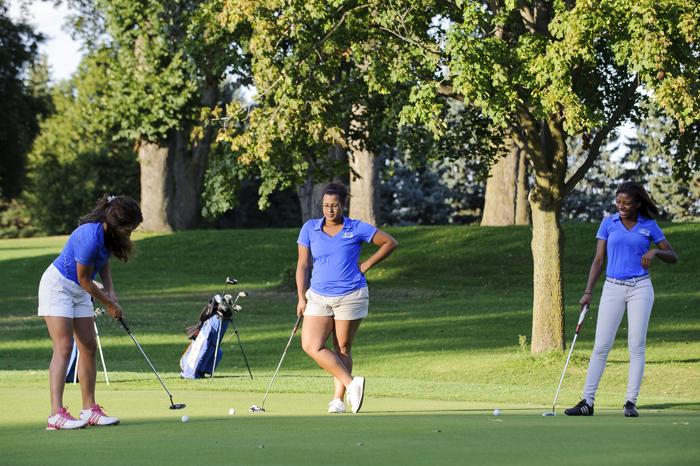
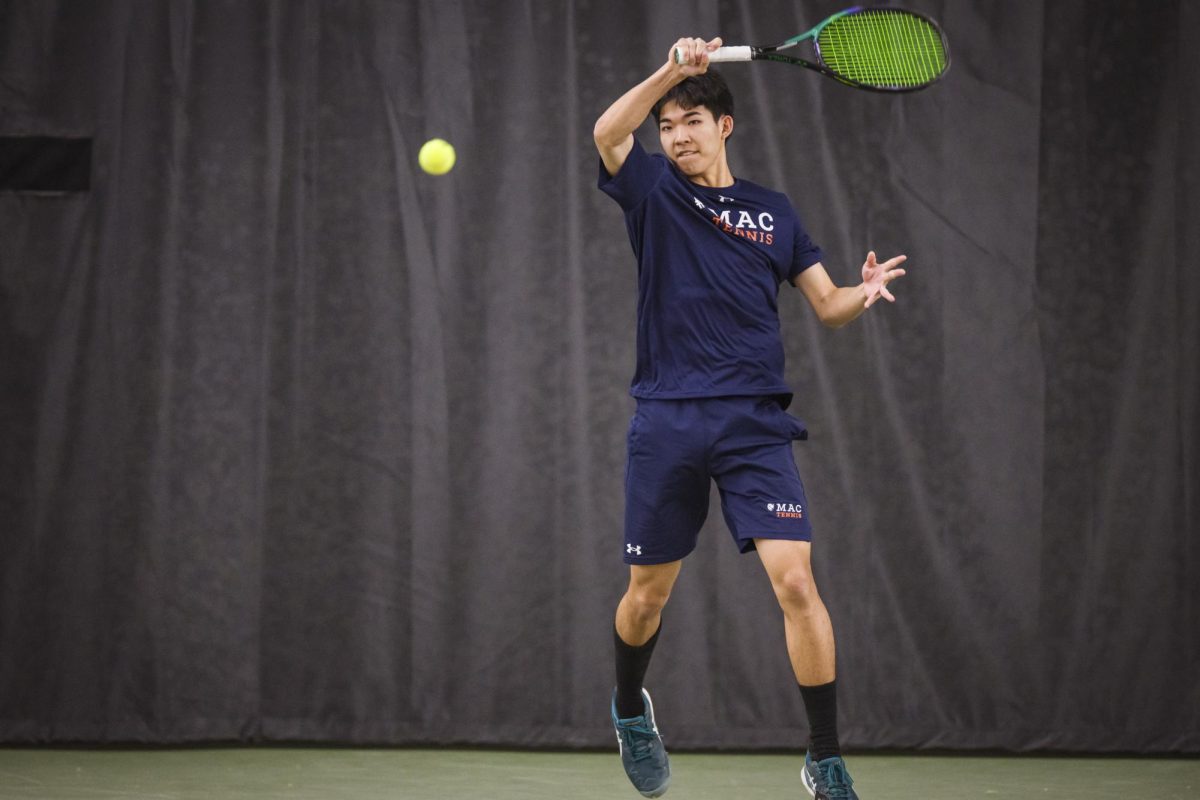
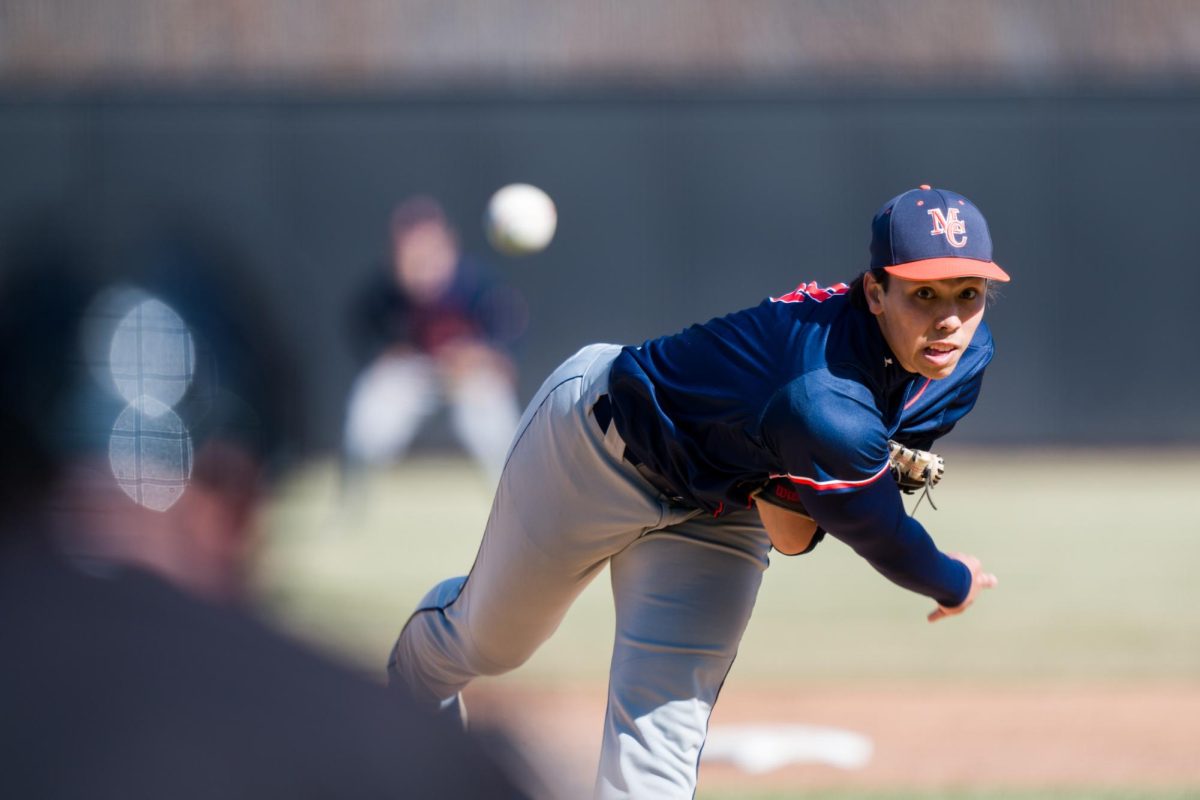
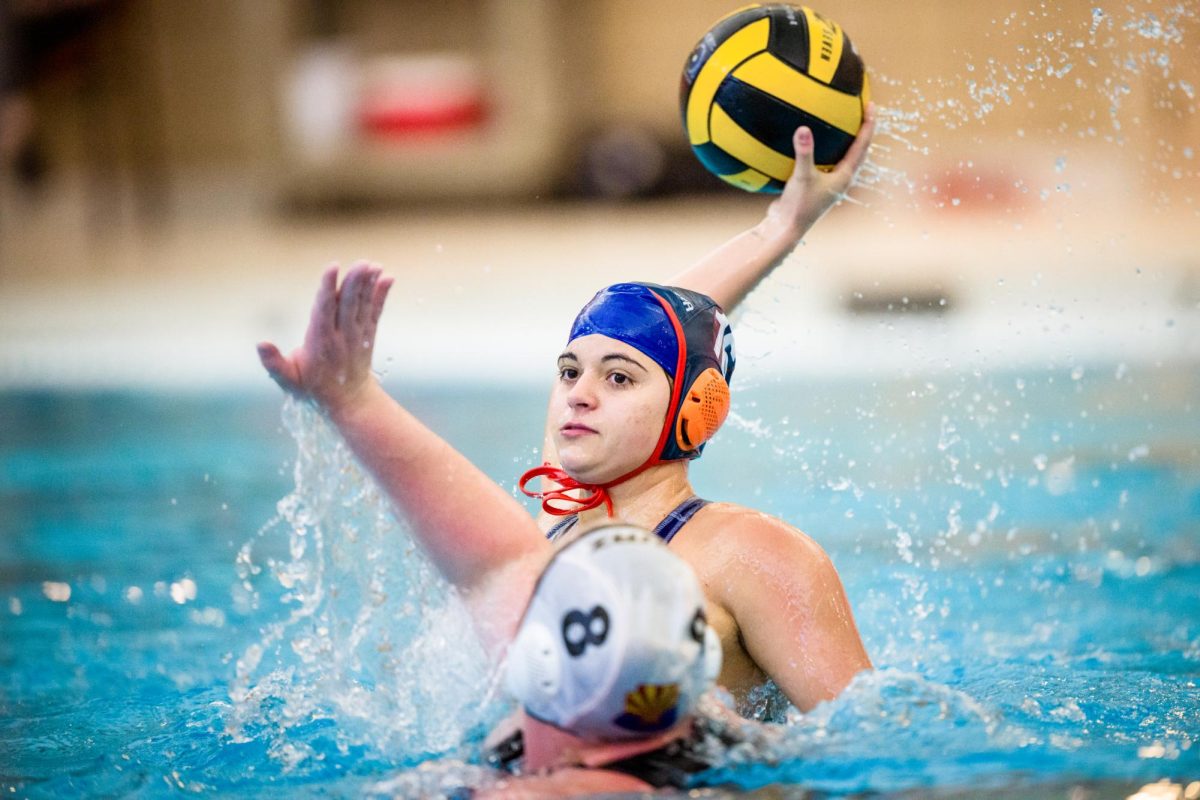

Faith Bond • Sep 11, 2019 at 7:50 pm
We’re a group of volunteers and starting a new scheme in our community. Your website offered us with valuable information to work on. You have done an impressive job and our entire community will be grateful to you.
Tracey Blake • Sep 10, 2019 at 1:43 pm
Itís genuinely very difficult in this active life to listen news on TV, thus I just use web for that reason, and get the newest news.
Julian Bond • Sep 5, 2019 at 4:28 pm
I would like to thnkx for the efforts you’ve put in writing this site. I am hoping the same high-grade website post from you in the future also. Actually your creative writing abilities has encouraged me to get my own site going now. Actually blogging is spreading its wings and growing quickly. Your write up is a good example.